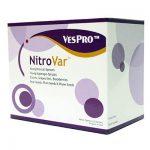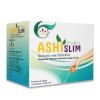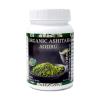 There is no one-size-fits-all diet for autoimmune diseases, as each condition is unique and may require specific dietary modifications. However, there are some foods that may be helpful for managing autoimmune conditions.
There is no one-size-fits-all diet for autoimmune diseases, as each condition is unique and may require specific dietary modifications. However, there are some foods that may be helpful for managing autoimmune conditions.
1. Broccoli Sprouts
Broccoli sprouts contain a compound called sulforaphane, which has been found to have anti-inflammatory properties and may potentially help with autoimmune conditions.
There have been some studies that suggest that sulforaphane may be helpful in reducing inflammation and oxidative stress, which are common features of autoimmune diseases. For example, one study found that sulforaphane supplementation in patients with rheumatoid arthritis reduced the severity of their symptoms.
Another study found that sulforaphane treatment improved clinical symptoms and disease activity in patients with systemic lupus erythematosus (SLE) and psoriasis.
2. Asparagus Sprouts
Asparagus contains a compound called saponin, which has been found to have anti-inflammatory properties and may potentially help to reduce inflammation associated with autoimmune diseases. In addition, asparagus is a good source of antioxidants, which can also help to reduce oxidative stress and inflammation.
One study in mice found that asparagus extract reduced inflammation and improved the symptoms of autoimmune encephalomyelitis, a mouse model of multiple sclerosis.
3. Grapes and Blackberries
Grape skins and blackberries are rich in polyphenols, which are antioxidants that have been shown to have anti-inflammatory effects. While more research is needed to fully understand the effects of grape skins and blackberries on autoimmune diseases specifically, these foods may potentially be beneficial as part of a balanced and healthy diet for managing inflammation and oxidative stress associated with autoimmune conditions.
Polyphenols have been shown to have a variety of health benefits, including reducing inflammation, improving immune function, and protecting against oxidative stress. Some studies have also suggested that polyphenols may have potential therapeutic effects on autoimmune diseases such as rheumatoid arthritis and multiple sclerosis.
4. Cloves
Cloves are rich in bioactive compounds like eugenol, which has been shown to have anti-inflammatory effects in some studies. In addition, cloves are a good source of antioxidants, which can help to reduce oxidative stress and inflammation.
5. Probiotic-rich foods
Probiotics can help to support gut health and may have anti-inflammatory effects. Good sources of probiotics include fermented foods like yogurt, kefir, kimchi, and sauerkraut.
NitroVar™ is formulated based on Okinawa raw food diet which works synergistically to support autoimmune diseases like lupus, rheumatoid arthritis, psoriasis. It serves as an immune system modulator.
NitroVar™ is made of young broccoli sprouts, young asparagus sprouts, cloves, grapes skin, blackberries, pear seeds, plum seeds & prune seeds











Facebook Comments